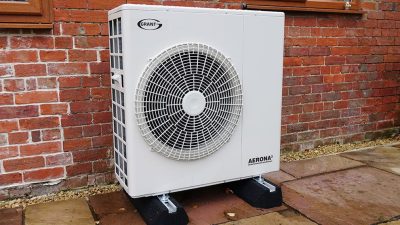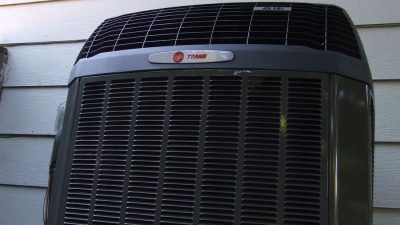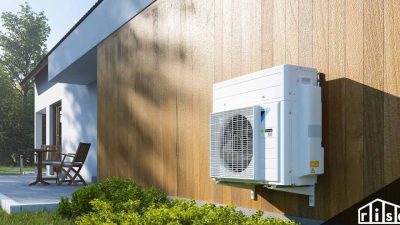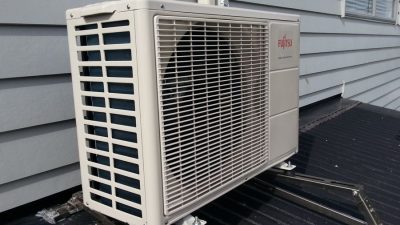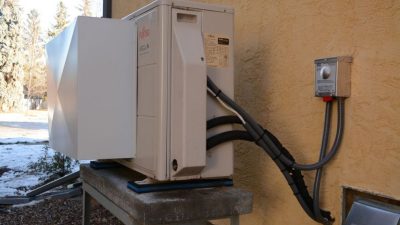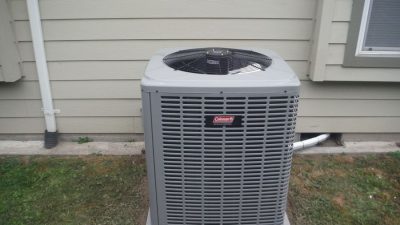Heat pumps are an efficient way to maintain comfortable temperatures in your home or office all year long. But with any mechanical system, regular maintenance is required to keep it functioning optimally and free from breakdowns. In this article, we will explore the importance of heat pump maintenance and provide tips on how you can ensure that your heat pump continues to run smoothly.
Heat pumps are a great way to keep your home or office at the perfect temperature without breaking the bank. But without proper maintenance, you could be heading for a costly repair bill. Regular maintenance can help extend the life of your heat pump, minimize energy consumption, and decrease the chance of unexpected breakdowns. Investing in routine maintenance now can save you time and money in the future.
When it comes to keeping your heat pump running efficiently, preventive care is key. Taking steps now to ensure that all components are working properly can make all the difference in how well your system runs and how much it costs you in energy bills each month. Keep reading to learn more about maintaining your heat pump and how it can give you peace of mind knowing that your system won’t let you down when you need it most!
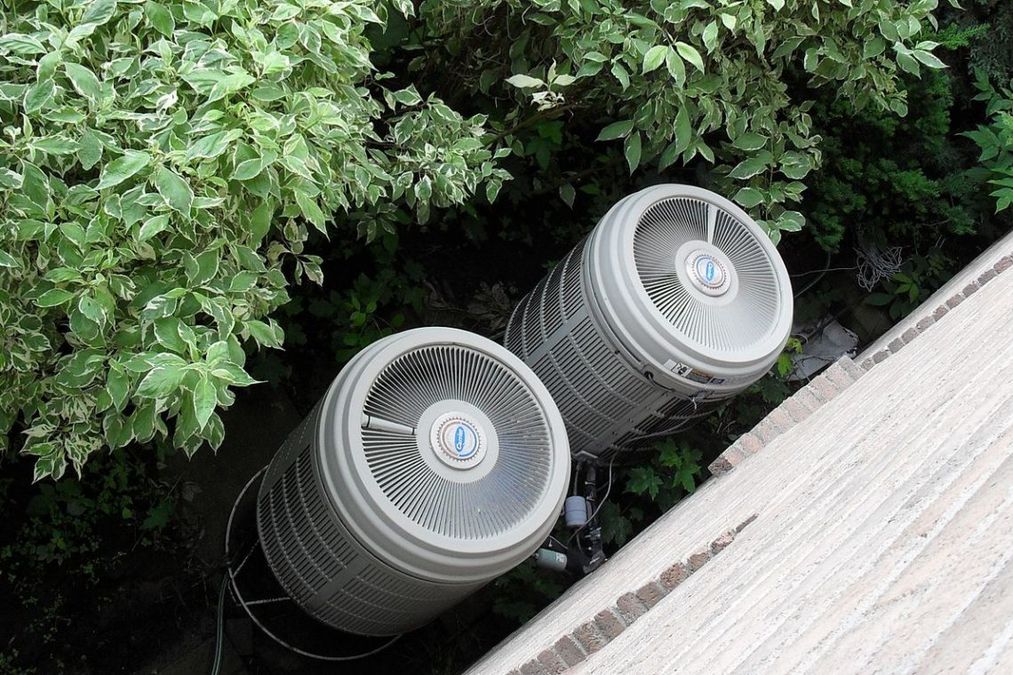
What Is A Heat Pump?
What is a heat pump? A heat pump is a device that works like an air conditioner in reverse, transferring thermal energy from one place to another. It takes the warmth of the air outside and brings it inside your home, providing efficient heating and cooling to maintain comfortable temperatures year-round. Heat pumps offer many advantages over traditional heating systems, including lower energy bills and reduced maintenance costs. However, they also come with some drawbacks that should be considered before investing in one.
Heat pumps use refrigerant to move heat from the outside into your home. They are powered by electricity, which makes them more cost-effective than combustion-based systems like furnaces or boilers. Heat pumps also have the added benefit of being able to cool down your house during hot summer months. In addition, they require less upkeep than other types of heating systems since there are no fuel tanks or chimneys to clean. Unfortunately, their initial cost can be higher than other systems and their performance can be affected by extreme temperatures.
Types Of Heat Pumps
When it comes to heat pumps, there are several types available on the market. Geothermal pumps use energy from the ground to provide heating and cooling, while air source pumps draw heat from outside air for heating. Dual fuel pumps combine a regular furnace with an air source heat pump, and have been found to be particularly efficient in colder climates. Ground source pumps are similar to geothermal pumps, but they use pipes buried in the ground to transfer energy rather than drawing it directly from the earth.
No matter what type of heat pump you choose, proper maintenance is essential for ensuring that your system runs efficiently and reliably all year round. Regularly checking filters and coils, scheduling professional inspection at least once a year, and properly maintaining your thermostat settings can help keep your heat pump running smoothly and save you money on costly repairs in the long run.
How To Inspect Your Heat Pump
It’s important to inspect your heat pump on a regular basis to ensure it runs efficiently and safely. A periodic checkup can help you avoid costly repairs down the line while keeping your energy bills low. Here are some tips on how to inspect your heat pump:
First, you’ll want to examine the area around the unit for any signs of physical damage or debris. Look for anything that could impact its performance such as tree branches, leaves, weeds, etc. Also check for rust or corrosion on the exterior panels, drain lines, and other exposed parts.
Next, open up the access panel and make sure all of the wiring is secure and in good condition. Inspect all of the moving parts such as fans, blowers, and motors for signs of wear and tear. Check the condensate drain line for clogs or blockages that may inhibit water drainage from the system. Finally, note any strange smells or sounds coming from your unit which could indicate a more serious issue with your heating system.
Taking these steps regularly will keep your heat pump running smoothly so you can enjoy consistent comfort in your home without having to worry about sudden breakdowns or expensive repairs.
Cleaning And Maintenance Tips
Cleaning and maintaining your heat pump is essential for healthy air circulation in your home. Keeping up with regular maintenance will help you avoid costly repairs down the road. Start by cleaning or replacing the air filter every month. This helps to reduce strain on the system and keeps dust and dirt from circulating in your home. Next, it’s important to clean the condenser coils on a regular basis, as they are prone to collect dirt and debris. If these coils get too dirty, they won’t be able to transfer heat properly, causing the system to run inefficiently. When cleaning the condenser coils use a coil-cleaning solution or mild detergent and water – never use a pressure washer! Lastly, make sure you check the refrigerant level of your heat pump at least once a year. Low levels of refrigerant can lead to poor performance and excessive energy consumption.
Taking time for proper heat pump cleaning and maintenance can help keep your system running smoothly for years to come, saving you money on costly repairs or replacements. Don’t forget, regular maintenance can also improve indoor air quality – ensuring that you’re breathing clean air all year round!
Troubleshooting Issues With Your Heat Pump
When it comes to heat pump maintenance, troubleshooting any issues that may arise is essential. While regular cleaning and maintenance may keep your heat pump running smoothly, there are some problems that require a more in-depth look. Here are some tips for troubleshooting issues with your heat pump:
- Check the thermostat: Make sure the thermostat is set to the correct temperature and that it’s working properly.
- Look for blockages or debris: Inspect the outdoor unit for any debris or blockages that could be preventing air flow.
- Listen for strange noises: Pay attention to any unusual noises coming from the unit such as rattling or grinding sounds.
- Monitor air flow: Replace air filters regularly and make sure air is flowing freely throughout the space.
If you have checked all of these elements and are still having problems, then it’s time to call a professional technician who can diagnose and repair any underlying issues with your heat pump. A skilled technician will assess the situation, determine what needs to be done, and provide solutions for optimal system performance. Professional service can help ensure your heat pump runs efficiently while extending its lifespan so you don’t have to worry about costly repairs down the road.
Taking proactive steps towards heat pump maintenance can save you time and money in the long run, so don’t hesitate to contact a certified technician if you’re experiencing any issues with your unit.
When To Call A Professional
When it comes to heat pump maintenance, deciding when to call a professional can be difficult. Without the right knowledge, it’s hard to know when you should take on a task yourself or when you need help from an expert. To make this decision easier, here is a table outlining what tasks require the help of a professional heat pump specialist:
| Task | Do Yourself | Professional Help Needed |
|---|---|---|
| Cleaning the Coils and Fan Blades | Yes | No |
| Replacing Filters | Yes | No |
| Checking Thermostat Settings and Calibrating Temperature Sensors | Yes | No |
| Replacing Parts like Fans Motors or Compressors | No | Yes |
| Troubleshooting Electrical Issues1 | No | Yes |
If you’re unsure about any of your heat pump maintenance needs, don’t hesitate to contact a professional heat pump repair service or technician. Heat pumps are complex systems that require extensive knowledge and experience for proper diagnosis and repair. A professional heat pump service can help ensure your system is running efficiently and safely. Trusting a qualified specialist with your heat pump will give you peace of mind knowing that your home is in good hands.
1For safety reasons, always call a professional if working with electrical components.
Frequently Asked Questions
How Much Does It Cost To Install A Heat Pump?
Installing a heat pump is an important decision, and one of the first steps you should take is to determine the cost. Heat pumps are a great way to save money on energy costs, but they can be expensive to install and maintain. Depending on the size, type, and location of your heat pump, installation costs can vary greatly.
When considering the cost of installing a heat pump, consider all factors involved such as labor costs, materials needed, and any permits required. Heat pump installation price typically ranges from $2,000 to $10,000 or more depending on these factors. The cost of purchasing and installing a heat pump can vary significantly depending on your location and climate.
To get an accurate estimate for installing a heat pump in your home, it’s best to contact a qualified HVAC contractor who specializes in heat pumps. They will assess your needs and provide you with an accurate cost estimate for both the purchase and installation of your new system. A professional installer will also ensure that your system is installed safely and properly so that it runs efficiently throughout its lifespan. With proper maintenance, you’ll enjoy many years of reliable service from your new system while saving money on energy bills each month.
How Do I Know If My Heat Pump Is The Right Size For My Home?
Choosing the right size of heat pump for your home can be a difficult decision to make. Heat pumps come in different sizes with various capacities and measurements, so it is essential to get it right the first time. To avoid costly mistakes and ensure your home remains comfortable all year round, here are five key points to consider when determining the correct heat pump size for your home:
- Measure the area that needs heating or cooling: This includes any living spaces, such as bedrooms or living rooms, as well as any garage, attic or workshop.
- Consider the climate in your region: If you live in an area with extreme temperatures (hot or cold) then you will need a higher capacity heat pump to cope with the demand.
- Research energy efficiency ratings on different models: Look for models that have higher Seasonal Energy Efficiency Ratings (SEER). These ratings indicate how energy efficient a model is over a season and will help you to reduce running costs in the long run.
- Check noise levels: Many people forget to factor in noise levels when selecting their heat pump. Look out for low decibel ratings when choosing a model and make sure it won’t be too loud for your home environment.
- Talk to a professional: Finally, if you’re still unsure which size of heat pump is best for your home then get advice from an HVAC contractor who can offer expert advice on the best choice for your requirements.
Ultimately, getting the right size of heat pump is essential if you want to ensure your home remains comfortable all year round without incurring large bills. By following these steps and using professional advice where needed, you can make sure you choose the perfect heat pump size for your needs and enjoy maximum comfort at minimal cost.
How Often Should I Have My Heat Pump Serviced?
Heat pump servicing is an important part of keeping your home functioning properly. Not only does it help keep your system running smoothly, but it can also save you money in the long run by preventing costly repairs and replacements. But how often should you have your heat pump serviced?
The answer to this question depends on several factors, including the age and condition of your system, as well as the type of heat pump you have. Generally speaking, most heat pumps need to be serviced at least once a year. This should include a thorough inspection and cleaning, along with any necessary repairs or adjustments. While the cost of heat pump maintenance can vary depending on the complexity of the job, it’s usually around $200-300 per visit.
For optimum performance, consult your owner’s manual for specific service intervals and follow a regular heat pump maintenance checklist. This may include things like checking all wiring connections, lubricating moving parts, replacing air filters, cleaning condenser coils and inspecting parts such as compressors and expansion valves. Taking these steps will help ensure that your system is running at its peak efficiency and help prolong its life span while avoiding expensive breakdowns due to neglect or lack of maintenance.
How Long Do Heat Pumps Last?
How long do heat pumps last? This is a common question asked by homeowners who are considering investing in this energy efficient technology. Heat pumps can provide a reliable and cost-effective way to heat and cool your home, but how durable are they? Understanding the heat pump lifespan, life expectancy, durability, longevity and reliability is important when making an informed decision.
Heat pumps can last up to fifteen years if properly maintained. The average life expectancy of a well-maintained system is usually between ten and fifteen years. Factors that affect the durability of a heat pump include installation quality, usage frequency and climate conditions. System age is also an important factor to consider; older systems tend to be less reliable than newer models.
When it comes to longevity, heat pumps have earned their reputation as one of the most reliable heating options on the market today. With proper maintenance and occasional repairs, heat pumps can provide decades of comfortable temperatures for your home. Investing in a quality unit from an experienced contractor is key when looking for maximum reliability from your heat pump. Ultimately, choosing a heat pump can give you peace of mind that you’re getting the best energy efficiency available while also enjoying greater freedom in controlling your climate needs at home.
What Are The Benefits Of Using A Heat Pump?
When it comes to choosing a heating and cooling system, heat pumps offer a variety of advantages. From energy savings to reduced emissions, these systems can help you manage your climate control while providing superior indoor comfort. Let’s explore the benefits of using a heat pump in more detail.
Heat pumps are incredibly efficient and can help you save on your energy bills. By using natural sources like the air or ground, they use less electricity than traditional systems, meaning you’ll pay less for climate control over time. Plus, since they don’t burn fuel, they produce fewer air pollutants, reducing their environmental impact and helping create healthier air inside and outside your home.
In addition to their efficiency and eco-friendly qualities, heat pumps are also great for temperature control in any season. With advanced technology that works to maintain steady temperatures indoors no matter the weather conditions outside, you can enjoy consistent comfort all year round – something other systems just can’t provide.
Whether you’re looking for reliable temperature regulation or want to reduce your energy usage at home, heat pumps have plenty of advantages that make them an ideal choice for managing climate control in any environment. So why not explore what these systems have to offer?
Conclusion
To conclude, it’s important to understand that heat pump maintenance is essential to keep your system working effectively. Installing a new heat pump can be expensive, but the cost of regular servicing and maintenance will be far less than replacing the system. It’s also important to make sure that the size of your heat pump is appropriate for the size of your home. Regular servicing will extend the life of your system and provide you with maximum energy efficiency.
The benefits of using a heat pump are obvious; it uses renewable energy sources instead of fossil fuels, which helps us reduce our carbon footprint and saves us money in the long run. With proper care and regular maintenance, we can get many years of reliable use from our heat pumps.
In conclusion, if you want to get the most out of your heat pump, then it’s essential to ensure that it’s installed correctly and serviced regularly. This will help you maximize its efficiency while minimizing costly repairs or replacements down the line. Taking these steps will ensure that you enjoy a comfortable home climate all year round without breaking the bank!

